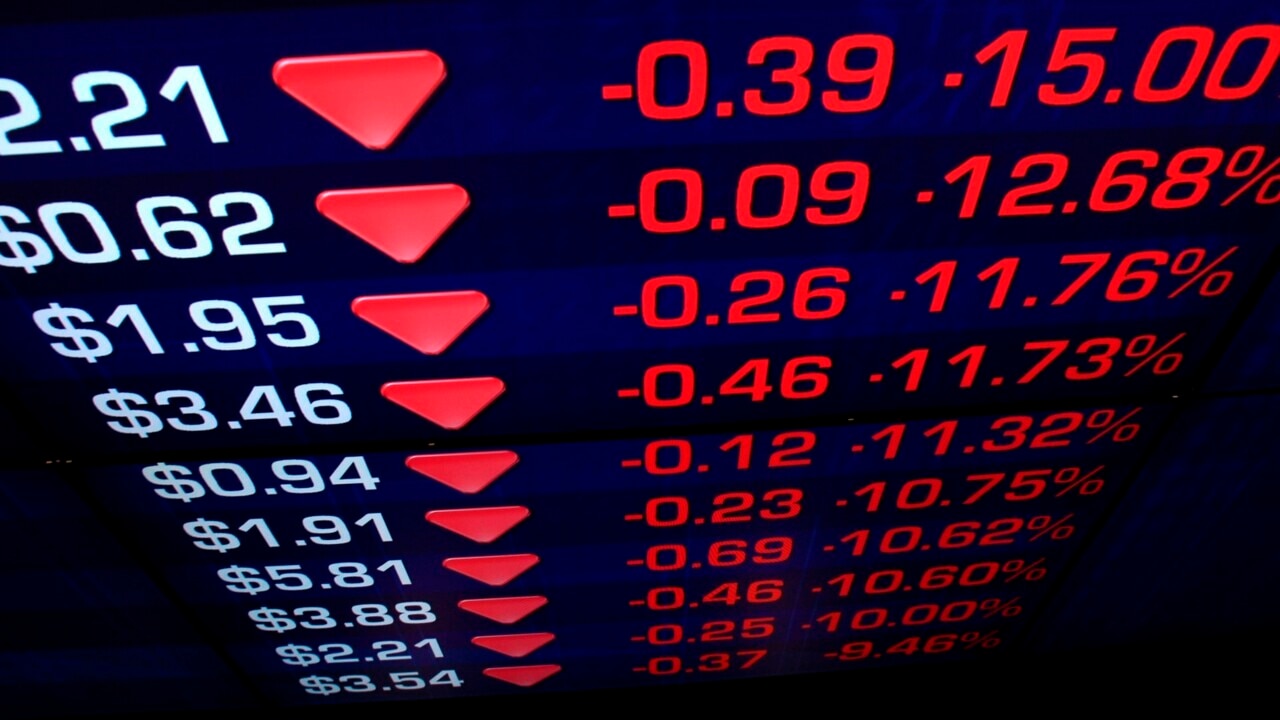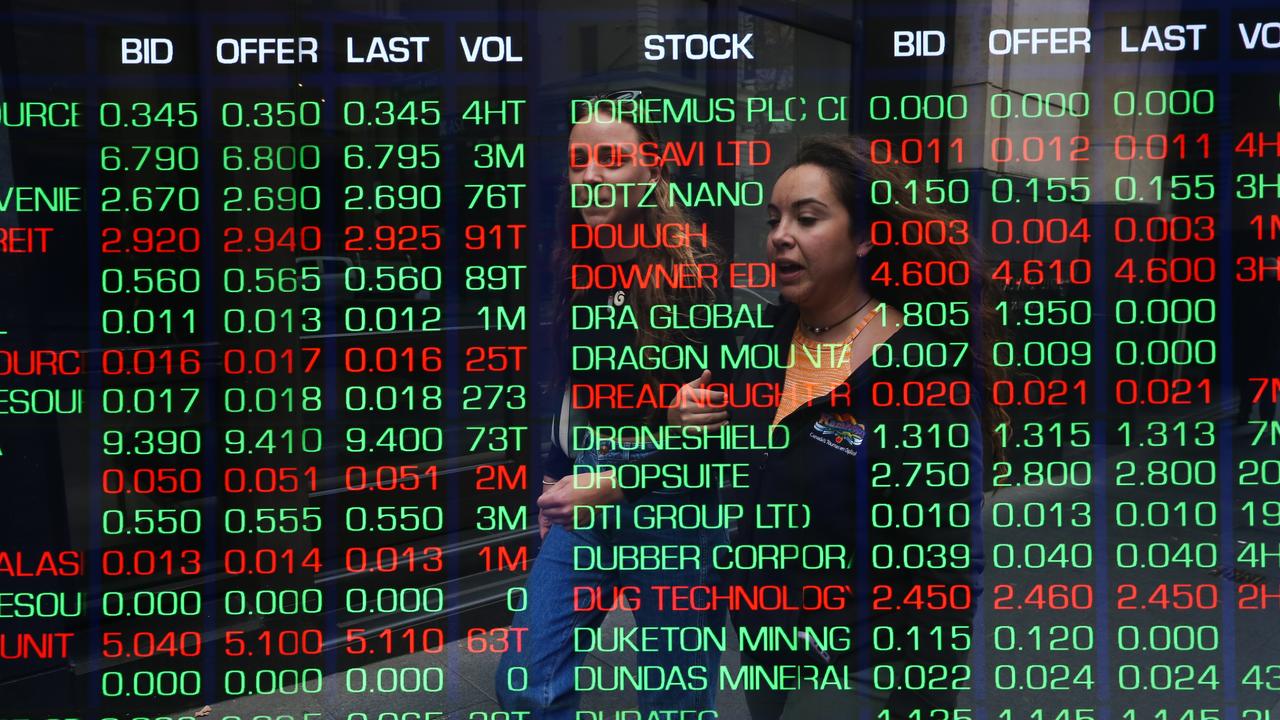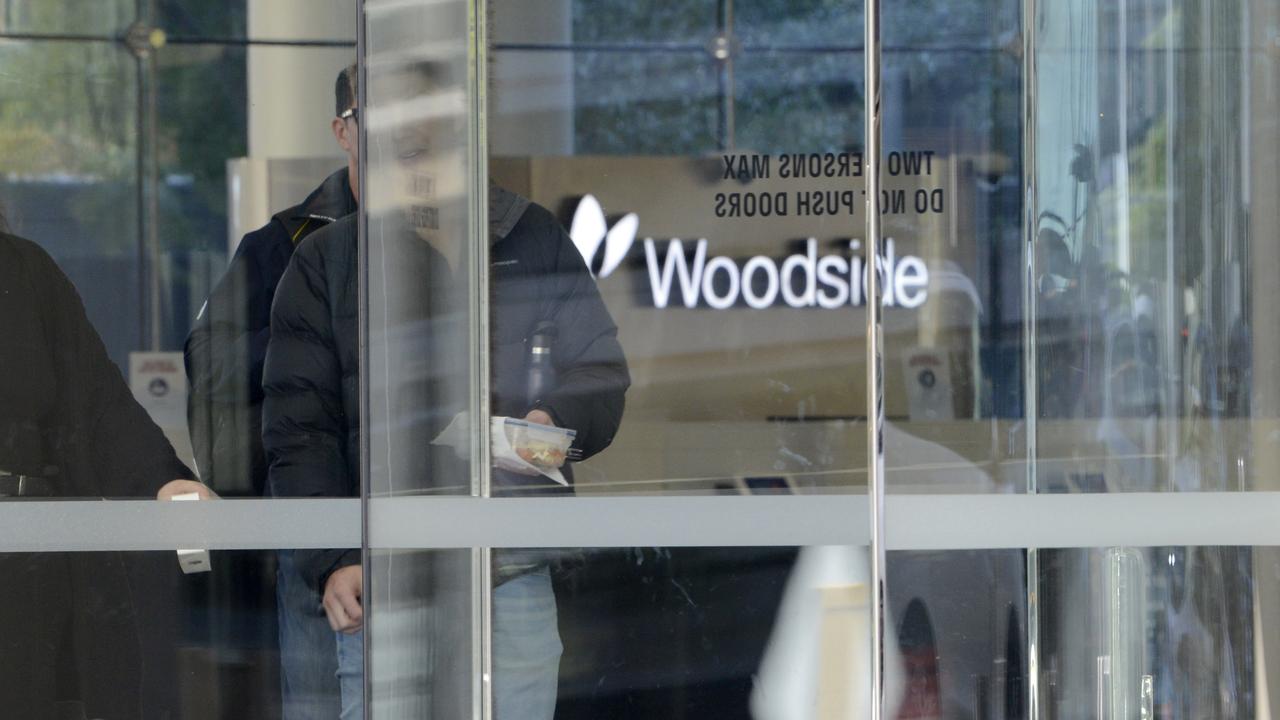ASX fights back after meltdown, consumer items strong after RBA holds cash rate
The ASX has clawed back some ground after sweeping meltdowns on global sharemarkets led to big losses at the start of the week.

The Australian sharemarket steadied on Tuesday after an implosion on Japanese markets dragged the ASX to its worst day in four years.
The S&P/ASX200 closed up 31 points, gaining 0.41 per cent on Tuesday, to 7680.6.
Following the worst day since May 2020 to open the week on Monday, the Australian sharemarket harboured seven of the 11 sectors to gains on Tuesday.
Real estate gained nearly one per cent while financial and industrials pushed the pack into the green. Exchange-traded funds tied to the Nasdaq100, global semiconductors and crypto all recorded double-digit percentage gains.

EToro market analyst Josh Gilbert said sentiment settled, somewhat.
“After one of the worst days in global markets since the pandemic, it’s fair to say investors are going to feel uneasy,” Mr Gilbert said.
Markets had seemed to find a footing and settled down after a “painful day” of trade on Monday, he said.
“However, it’s important to zoom out. Yesterday’s fall for the Nasdaq, S&P500 and ASX on a five-year chart is merely a blip,” he said.
“Pullbacks are uncomfortable for investors but they happen and are simply the price of entry into the stock market.
“Sell-offs of this magnitude highlight the importance of not timing the market and using a simple strategy such as dollar cost averaging.”

After the RBA left the cash rate on hold, the discretionary sector made the largest gains for the day, led by Wesfarmers (up 2.27 per cent) and gambling machine makers Aristocrat Leisure (+2.53). Breville, JB Hi-Fi and Harvey Norman all gained more than one per cent.
In the ASX industrial sector, Qantas gained 1.56 per cent to $5.87, despite political heat over “slot hoarding” at Sydney Airport.
Engineering consultants Lycopodium, up 40 per cent on the year, gained 2.9 per cent to finish $13.23.
Fortunes were flipped in the energy sector though, which fell 1.99 per cent.
Woodside lost five per cent to close at $25.12, after finalising a $3.7bn deal to buy a gas-based ammonia project on the US Gulf Coast. Analysts say shareholders are concerned about reinvestment being put ahead of returns.
The ink is barely dry on a $900m deal Woodside signed last month on another US Gulf Coast venture. Woodside is down 34 per cent in the past 12 months.

Paladin Energy, Deep Yellow and Cooper Energy all made gains over three per cent for the day. Uranium developer Bannerman Energy rocketed up 7.3 per cent to $2.48.
As a whole 100 of the ASX200 equities ticked upward, and 16 were flat.
It was a nervy start when the market opened Tuesday morning, foreshadowed by sizeable US tech losses.
On Wall Street overnight, Nvidia lost 6.3 per cent to US$100.45 after being down as much as 15 per cent during the session. Microsoft fell 3.3 per cent, Apple shed 4.8 per cent and Amazon slipped 4.1 per cent.
The S&P 500 lost 160 points, falling 3 per cent to 5186.3 by close.
“US equity markets dived overnight as investors confronted heightened fears of a looming recession,” IG market analyst Tony Sycamore said.
“This turmoil was set up by a dramatic unwinding of the ‘Japan Trade’, leading to a staggering 15 per cent drop in the Nikkei (Monday).
“We suspect that yesterday’s frenzied sell-off was capitulation and the final act of cleansing of long positions in the JapanTrade. However, we do need further evidence of this in the sessions ahead.”
The Nikkei 225 springboarded back to life though, closing up 10 per cent to 34,675.46.
But that is not enough alone to recover the 12 per cent lost on the Tokyo benchmark on Monday, which was the worst single day since the 1987 crash. The Nikkei 225 dropped 5.8 per cent in the session prior as well.
Wall Street’s “fear gauge”, the CBOE Volatility Index, had shot up before being settled by service-based companies data during Monday’s session.
Recent poor US companies data was a “return to expansionary territory which doesn’t align with the current gloom surrounding impending recession”, Mr Sycamore said.
Read related topics:ASX






